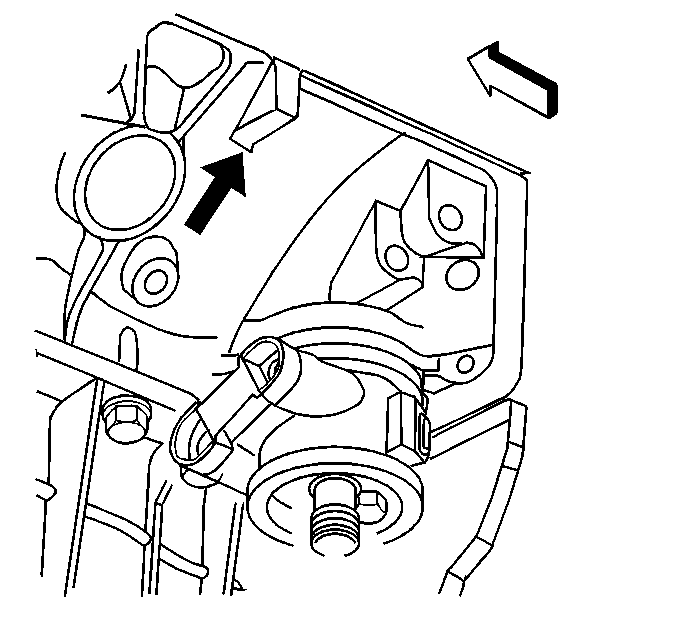Notice: Broken or deteriorated mounts can cause misalignment and destruction
of certain drive train components. When a single mount breaks, the remaining
mounts are subjected to abnormally high stresses.
Notice: When raising or supporting the engine for any reason, do not use a jack
under the oil pan, any sheet metal, or the crankshaft pulley. Due to the small
clearance between the oil pan and the oil pump screen, jacking against the
oil pan may cause the pan to be bent against the pump screen. This will result
in a damaged oil pickup unit.
- Raise the vehicle. Refer to
Lifting and Jacking the Vehicle
in General Information.
- Inspect for loose or missing bolts at the following locations:
| • | The engine mount to the engine |
| • | The engine mount to the engine mount frame bracket through-bolts |
| • | The engine mount frame bracket to the frame |
- Replace loose or missing bolts. Refer to
Engine Mount Replacement
.

Notice: When raising or supporting the engine for any reason, do not use a jack
under the oil pan, any sheet metal, or the crankshaft pulley. Due to the small
clearance between the oil pan and the oil pump screen, jacking against the
oil pan may cause the pan to be bent against the pump screen. This will result
in a damaged oil pickup unit.
- Using a jack on the square tab at the
rear of the engine block (left side shown; the right side requires removal
of the starter), raise the engine in order to complete the following tasks:
| • | Remove the weight from the engine mount |
| • | Place a slight tension on the rubber cushion |
| • | Observe the engine mount while raising the engine |
- Replace the mount if the following conditions exist:
| • | The hard rubber surface is covered with heat check cracks |
| • | The rubber cushion is separated from the metal plate of the mount |
| • | The rubber cushion is split through the center |
- Lower the vehicle.

